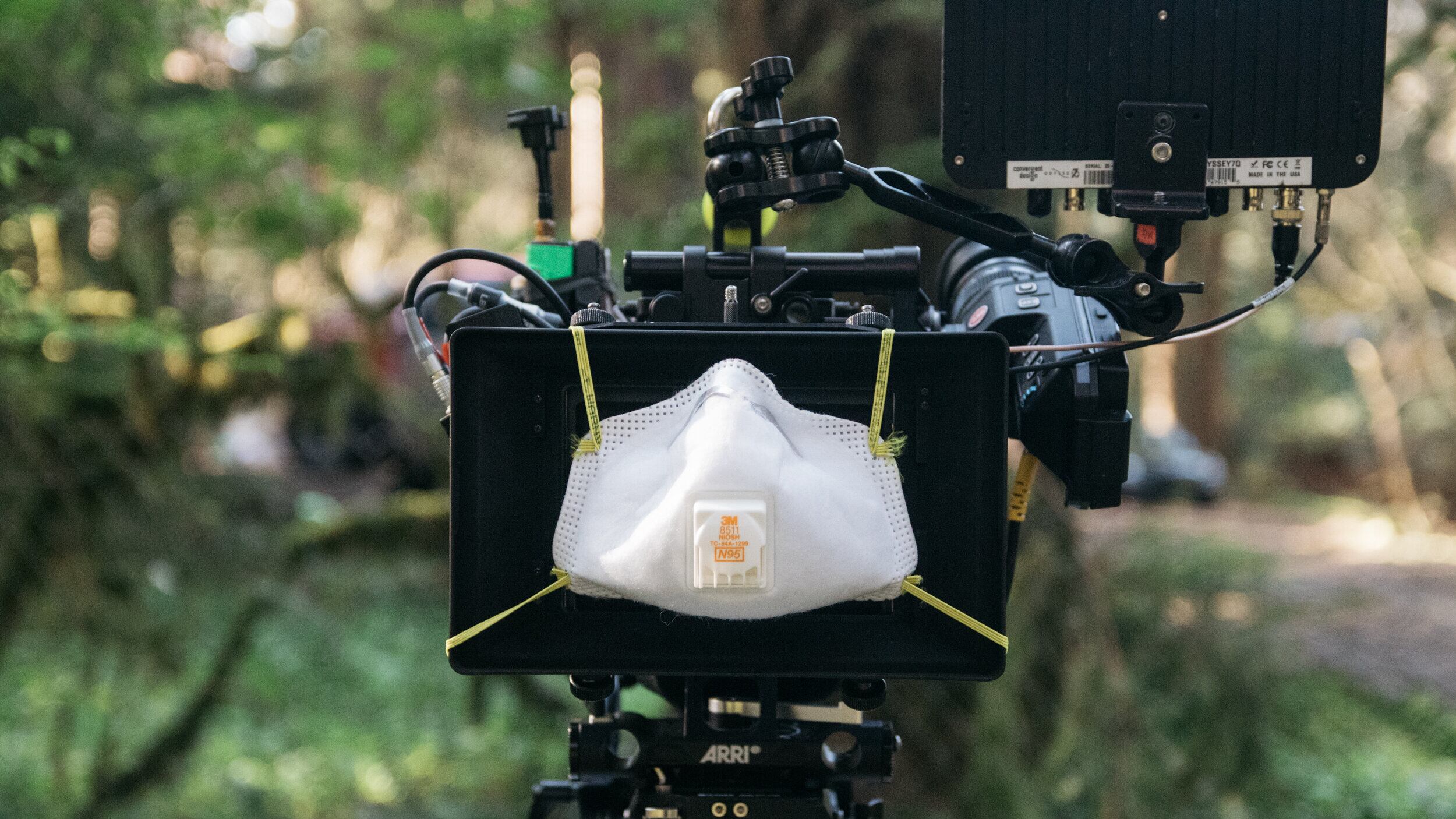Chad Parker wasn't planning to spend his spring playing a quarantined park ranger.
The Portland-based producer was set to direct a commercial in Sacramento, Calif., last March. But COVID-19 forced Parker to call off production two days before shooting was scheduled to begin.
"At the end of the day, we're making commercials," says Parker. "This isn't something anyone should die for."
Nonetheless, remaining out of work for an indefinite period didn't exactly sound feasible. So Parker began researching solutions proposed by other film professionals. Most of the information he found ranged from improbable to impossible, like booking an entire hotel where cast and crew could quarantine. As an experiment, Parker decided to self-fund a production that abided by physical distancing guidelines. Created by a bare-bones, 10-member team, "The Homebound Ranger" is a cheeky stay-at-home public ad campaign about an Oregon park ranger adjusting to life indoors. The three approximately 20-second PSAs were made without cast or crew coming within 6 feet of each other. With tongue-in-cheek twee, Parker plays the ranger who's quarantined in his cabin, solving crosswords and carefully spritzing houseplants instead of roaming the great outdoors.
In a certain sense, it was a total success. Parker and his team produced a high-quality campaign, developed disinfection procedures for handing off gear, and discovered that clear plastic shields are essential for close-up shots. But "The Homebound Ranger" couldn't solve one crucial problem: generating more work. Parker hasn't filmed anything since its completion.
"There are people that are interested," he says. "But, yeah, it's a long road. Clients are still very nervous about shooting."
That problem is by no means limited to filmmakers in advertising.
Oregon's film industry is multitiered and deeply interconnected. Within the past two decades, the state has grown into somewhat of a destination for filmmakers thanks to its history as a stop-motion animation mecca, nonprofits that invest in education and production, and organizations like Oregon Film, a state agency that attracts a healthy supply of out-of-town projects. Productions like Hulu's Shrill and Netflix's Everything Sucks! film here because of the state's tax incentives, striking locations and large pool of qualified industry workers. Small-scale, local filmmakers—many of whom make their living in Portland's ad industry while funding their passion projects through grants—can then access those same resources when the bigger productions have packed up.
But COVID-19 has put all of that at risk.
"The industry is going to be at a standstill, and that can only last for so long before people start leaving, getting other jobs, moving out of state," says Parker. "You're probably going to go wherever the work is."
Oregon's film industry is now trying to figure out how to return to work without endangering public health. In May, the Oregon Media Production Association released a set of protocols for operations during the pandemic. Those guidelines address everything from training to recognize COVID-19 symptoms to regulating onset airflow to prevent the spread of respiratory droplets.
"That task force wants to get people back to work and get them back to work safely," says Lisa Cicala, OMPA's executive director. "But the other piece of it is making sure that people know that Oregon is open and prepared for business."
While productions the size of "The Homebound Ranger" are now attempting to restart, all of OMPA's guidelines become exponentially more complicated for longer narrative shows and movies, which take longer to produce and require actors to be in close physical proximity. Chad, a TBS series starring Saturday Night Live's Nasim Pedrad, was filming in Portland when COVID-19 shut down production in March. Shrill was set to make its third season here this summer, as were two unannounced Netflix shows, according to Oregon Film. None of those productions has confirmed how or when they can resume those plans.
Local filmmakers are struggling, too.
Director Dawn Jones Redstone planned to start filming her first feature about a single mom pursuing her dream of a career in politics this summer. But OMPA estimates that its guidelines will require 30 percent longer production times. Plus, there are the added costs of filling the recommended COVID-19-related positions. Because of all that, Redstone now doesn't foresee starting production until Multnomah County enters its second phase of reopening. And even then, there would be challenges.
"I don't know if I could go back to work tomorrow if they said Phase 2 was happening, because I also don't have child care for my daughter," she says. "I would have to earn more than what it would cost. It gets complicated."
The pandemic poses a real threat to the higher-budget end of Oregon's film industry. But that just means it could severely damage those struggling for institutional recognition.
"I'm worried about indie filmmakers," says Redstone. "I don't know if the people that are already marginalized are going to be able to overcome this."
But despite fear and uncertainty, Redstone sees an opportunity for a better future.
"I feel like what's happening now with Black Lives Matter can't not be part of that conversation," she says. "If we're talking about beginning again, now is the perfect time to look at what's happening in the world and figure out how the media industry is going to respond to that."
